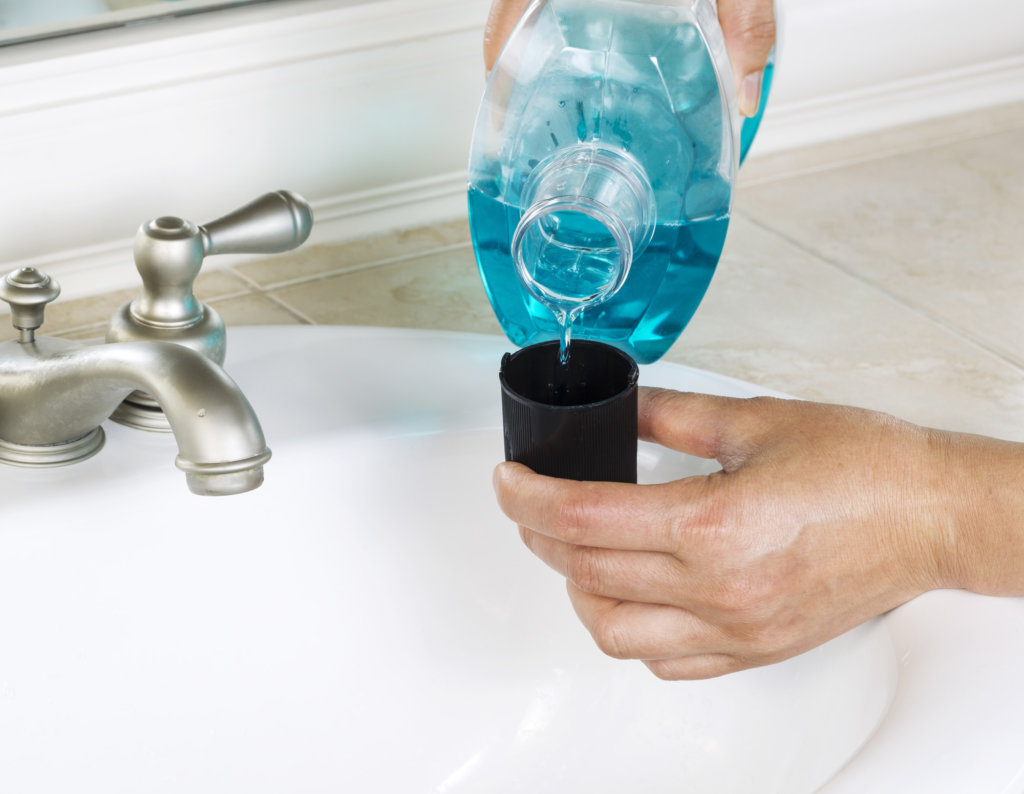
Are you concerned about your child’s dental hygiene routine? More than 50% of children aged 6-8 have had a cavity in one of their baby teeth. For this reason, you may be hoping mouthwash can help protect your children’s teeth.
So is mouthwash for kids safe? Mouthwash can help to prevent tooth decay and bad breath when used alongside brushing and flossing. But there are risks that you should be aware of before you let your child use it.
Do you want to learn more about mouthwash and children? Here is everything you need to know before you let your kids use mouthwash.
How Safe is Mouthwash for Kids?
Child-friendly versions of mouthwash are safe for your children to use. Mouthwash is an effective part of your child’s dental hygiene routine. If your child is ready to use mouthwash then you can go ahead and add it into their routine.
Mouthwash for kids is not recommended by the American Dental Association (ADA) before the age of 6 years. Speak to your dentist if you have any questions about whether your child is ready for mouthwash. You should practice with your child and check with your dentist to make sure they are ready to start rinsing with mouthwash.
Benefits of Mouthwash for Kids
Mouthwash should never replace brushing and flossing. However, it can be a useful addition to your child’s dental hygiene routine. It can increase the effects of brushing and flossing whilst adding an element of fun into their dental hygiene routine.
Prevents Tooth Decay
Mouthwash for kids can help strengthen the tooth enamel to prevent tooth decay. Frequent snacking and sugary drinks can encourage early tooth decay in children. Using a mouthwash can help to rinse away any sugar or bacteria that gets left behind in the mouth after brushing and flossing.
Fights Bad Breath
Using mouthwash can give your child fresher breath. Mouthwash for kids is formulated with active ingredients that will fight bad breath and leave behind a pleasant taste. Mouthwash can be a temporary fix for bad breath.
If the problem persists, ask your Arlington pediatric dentist about what could be causing your child’s bad breath. You may have to adjust their diet or brush their tongue to eliminate the cause of the problem. Some of the most common causes of bad breath in children include gingivitis, cavities, and poor oral hygiene.
Extra Cavity Protection
The fluoride in children’s mouthwash helps to protect against cavities. Excess saliva, acid, and bacteria can cause cavities in children. Foods that are high in sugars and starch (eg. cakes, candy, and juice) can become acidic in your child’s mouth and break down tooth enamel.
Rinsing with mouthwash is helpful if your child struggles to brush and floss properly.
Boosts Effects of Brushing and Flossing
Rinsing with a child-friendly mouthwash can help take your child’s oral hygiene to the next level. Using mouthwash is also beneficial for children who wear braces. Any bits of food or debris that remain in the mouth will be cleared away by rinsing with mouthwash.
Best Mouthwash for Kids
There is no perfect brand of mouthwash for kids out there. However, mouthwash for kids should be mild and gentle. Mouthwash brands that contain alcohol are not suitable for children as they are too harsh. Some mouthwash brands will also stain the child’s teeth to show any plaque that has not been brushed away.
Check the label before you buy mouthwash for kids. The label should state that it is alcohol-free and contains a suitable level of fluoride. Alcohol mouthwash is safe for adults but dangerous for young children.
According to the National Institutes for Health (NIH) children under the age of 8 years should not consume more than 1mg of fluoride per day. Consuming fluoride will help your child develop strong and healthy teeth.
Try to choose a mouthwash that your child will be excited about. This will ensure they are interested and want to use it. There are various colors and flavors available for your child to try.
The mouthwash you choose should also be ADA-approved and show a full list of ingredients. Your pediatric dentist in Arlington will be able to recommend a brand that is suitable for your child to use. A Hurst pediatric dentist may prescribe mouth rinse in special circumstances or for conditions such as gingivitis.
How to Use Mouthwash for Kids
Giving your child mouthwash can carry risks if they are not ready to use it. Even if they are used to spitting out their toothpaste, they may not know how to spit out the mouthwash. You can practice doing this with water until your child is ready to use mouthwash.
Mouthwash and children can be a dangerous mix if you do not exercise caution. Make sure that you hold the bottle of mouthwash while your child is using it to prevent accidents. Your child may become curious and try to drink the mouthwash if they are not supervised by an adult.
In the early stages, you can try making up games to help teach your child how to rinse with mouthwash. You can set timers so they know when to spit and swish the mouthwash in their mouth. Speak to your kids’ dentist in Arlington for more ideas on how to add fun to your child’s dental routine.
Speak to Your Dentist About Mouthwash for Kids
So should kids use mouthwash? If you want to protect your child’s smile then using mouthwash for kids could be beneficial. Exercise caution when choosing a brand and always consult your Arlington kids dentist before you start using it.
Your dentist can advise whether mouthwash is suitable for your child. For more information on using mouthwash from a pediatric dentist in Hurst, contact Park Place Pediatric Dentistry and Orthodontics. The specially-trained, dedicated team will help guide you through the process and leave your child with a beaming smile on their face!
